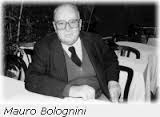
THE WHITE WHALE
Italy, 1964, episode in La Donna e una cosa meravigliosa, 102 minutes,
Directed by Mauro Bolognini.
“La balena bianca” (The White Whale), is a lurid bit of black humour in La donna e una cosa meravigliosa (Woman Is a Wonderful Thing, 1964). A circus dwarf named Eros tries frantically to murder his wife – a mountainous fat lady who gets fired out of a cannon to the tune of Ponchielli’s Dance of the Hours. All his efforts are vain; this “white whale”, like most of Bolognini’s women, is indestructible and all-powerful. Sparking a near-riot at the Venice Film Festival, this episode remains the only one Bolognini himself ever liked.
1. The impact of the film as a short story, impact in itself, as part of an omnibus film?
2. Black and white photography, music, the atmosphere of the circus, the creation of atmosphere for the story, sinister atmosphere within a circus?
3. How well did the film quickly communicate the authentic atmosphere of the circus, the various acts, the picturing of the audience, the atmosphere of thrills and dangers and audience expectation? The comic side of things, the clowns?
4. The difference with this circus and the focus of the plot: the dwarfs, the presentation of freaks, the visual images, audience response? Audience attitude towards freaks, how sympathetic, how repugnant?
5. The focus on the dwarfs in themselves, within this circus world, the contrast with normal size humans? How normal did they seem, abnormal? Mere physical abnormality but psychological and emotional normality? The comic aspects of presenting the dwarfs? The seriousness? The blend of comic and realistic? The insight into the behaviour of human nature in seeing dwarfs acting out actions and situations more associated with normal sized beings? How did the film play on the ambiguity of audience reactions?
6. Miriam symbolised as a white whale: how attractive a personality in herself, her size, the fact that she was married to Eros, the management of the circus? The humour and the skill in the various acts, especially on the tightrope? Her love for Eros? The ironic humour of her staying alive despite the poison, the explosion, the danger with the aerial trapeze? The delineation of her character? The symbol of the white whale and Moby Dick? How important fact that she could survive and that she was unkillable? The audience left with this?
7. The character of Eros, his name, the central role, his role in the circus, management and wealth, marriage to Miriam, love for her but yet her being too much for him? The humour and parody of the bedroom sequences? His being overwhelmed by her, growing to hate her, cruelty? His passion for Luciana, deceit, the outings, the parody of meeting and rendezvous, lust? Miriam as a white whale challenging him cruelly? The comic aspects of his various attempts, a would-be Bluebeard? His ultimate failure?
8. Luciana as the other woman, the importance of her being a dwarf? Her personality, her acts in the circus, her skill? Love of wealth, outings? Lust, cruelty? Her using of the pregnancy argument, blackmailing him? With the other men? Her continual defying of Eros, especially at the end with her cruel look from the trapeze?
9. Comment on the various set pieces in the circus, the encounters between Eros and Luciana, the bedroom scene with Miriam and Eros, the restaurant rendezvous, Luciana flirting with other men? The circus acts and the humour of Miriam having to ran to the toilet
10. The ironic portrayal of a romantic triangle, fidelity and infidelity, insight into human nature and relationships? The irony of the futility of Eros’s attempts on Miriam?